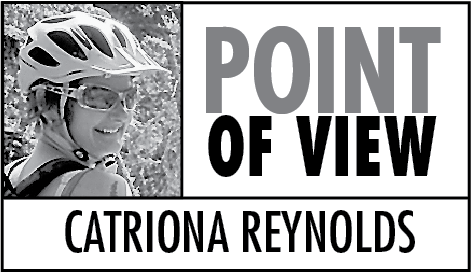Thank you to Homer City Council Member Francie Roberts for nine years of thoughtful, caring leadership on the council and as Mayor Pro Tem. On a personal level you have been a great mentor and colleague to me both with the council and on the KBBI board. I hope you enjoy the free time that opens up now that you don’t have all the council work, even if you have to stick it out through October.
Unfortunately for us, Francie is leaving the council at a time when we would really benefit from her big picture view, attention to detail with numbers and dollars and her understanding and compassion for our whole community. Homer and the State of Alaska are facing a fiscal crisis.
Some of the conversations about budgetary cuts have started honing in on city staff, hours worked, pay rates and benefits and on further cutting or reducing services. I want to talk for a couple of minutes about the bigger picture and an aspect of current U.S. economics that I think is very relevant to this discussion. Here we are working hard against what seems like impossibilities at the local and state government level, but I think that the city’s and city residents’ current fiscal problems are in large part caused by the national scene.
National income and wealth inequalities are impacting us here at the end of the road. In 1999 the median U.S. household income adjusted to today’s dollar was $5,000 more than it is now. In Homer the difference between 1999 and 2013 was $4,664 lower ($42,500 in 1999 = $59,536 adjusted to today’s dollars, while the actual is $54,872).
In the past two years the 15 wealthiest people (that’s 15 individuals not 15 percent and two of them are the Koch brothers) have seen a combined increase in wealth of $170 billion. Their increase in wealth is more than what is owned by the bottom 40 percent of U.S. citizens. The increase in wealth for these 15 people is twice what is spent on nutrition programs that feed 40 million people across the country.
Since 1995 the typical middle class U.S. family has experienced a 36 percent drop in income from $130,000 per year to $81,000 per year.
The transfer of wealth from middle class and poor (which includes the vast majority of us here in Homer) to multi-millionaires and billionaires is unjust and obscene.
In 1985, 90 percent of the population held 36 percent of the nation’s wealth. Now that 90 percent holds just 23 percent.
During the same period the top one-tenth of 1 percent saw their share increase from 10 percent to 22 percent.
This is immoral and unsustainable, and is a huge part of what is undermining Alaskan individuals’ and city of Homer and the state’s economy. Our community members are feeling financially pinched, and have noticed that increasing over time. Repeatedly I hear that it’s local costs and taxes that are blamed for the feeling of reduced personal and business financial capability.
However, in recent years taxes from the city and borough have been relatively static or have decreased, in fact the last tax increase was in 2005, a 1 percent sales tax increase. This was paired with a 1 mill rate property tax decrease in 2005. In 2006 the city passed the exemption for property tax on primary residences (on first $20,000 of assessed value). Households have also benefitted from the suspension of sales tax on non-prepared food items.
Also the Alaska Permanent Fund Dividends have been significantly above average. Blaming hardship on local government is short-sighted and ultimately incorrect. The reason for our lower personal economic well-being and the reason it feels like our households have less disposable income is mostly a tale of national proportions.
The dollar amounts we’re paying attention to at the City of Homer are insignificant in comparison. The diminishing and reduction of services we are talking about will negatively impact all of us and will do so at the expense of our
neighbors who work for the city.
Economic development, which attracts new people and new business to move to Homer as well as entices tourists to visit, relies on the city of Homer maintaining an attractive quality of life. This inludes maintaining services at least at the level that they are currently.
The council and the City of Homer are seeking long-term solutions to resolve the budget shortfalls so the city will be sustainable and responsible — a huge part of long-term opportunity and stability is impacted by the national scene. Outside parties, and big oil companies sway our representatives in Washington and at the state level.
Some candidates for city council are advocating for slashing city services without truly understanding and considering the ramifications of their proposal.
Some candidates are not acknowledging the severe cuts that have been in effect throughout the City of Homer in recent years. They are advocating for solving the current situation solely by a reduction in spending, presenting this as a solution that has not even been considered, let alone implemented, up to this point. This may sound appealing as an election platform, but has no grounding in reality and reflects a naivety especially when coupled with campaign promises to increase certain services.
When we consider our options for President of the United States and the U.S. Senate and Congress over the next year and beyond we need to make sure we don’t vote against our own best interests.
Here, at the local level during our election on Oct. 6 it is important to vote for candidates that recognize the complexities of the fiscal conundrum we face.
Catriona Reynolds has served on the Homer City Council since 2014.



